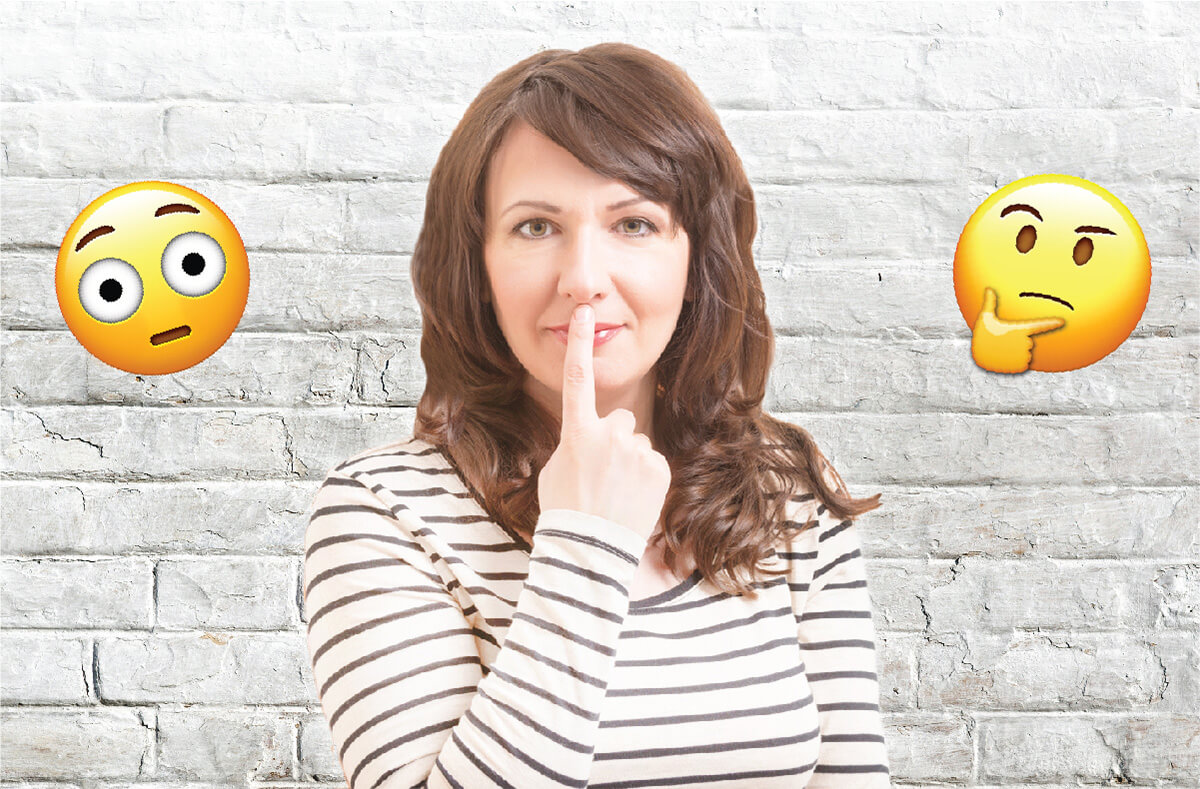
If you’re a part of my community, you’ve seen the research showing face-to-face tapping works better than diet and exercise, and heard all about tapping from the world authority Dr. Peta Stapleton. But can tapping really work for you? We psychologists sometimes get too caught up in studies and experts, so I wanted you to hear from real people who have experienced the benefits of online tapping themselves*…
Ronna was one of around 600 participants in our Tapping for Weight Management Online Program worldwide clinical trial** and here’s what she said:
“The 15 pounds I wanted to lose had me obsessed. I thought about food all the time, always wishing I could eat more, always thinking about my next meal. That is now gone. Until now that ugly beast of food obsession still ruled. Now I’m happier, more peaceful, and more grounded.”
But Ronna’s experiences with tapping weren’t unusual. Here’s Valerie’s story:
“It has been an absolute pleasure participating in this trial. The information supplied is going to inspire and motivate me ongoing. I have learnt so much about myself and the triggers that I allow in. More importantly I now have the skills to prevent a spiral. I am comfortable in my skin, I walk tall and own my space. I know that food is not my enemy, in fact it nourishes.”
I don’t have to ask if you want some of these benefits for yourself, of course you do! So why aren’t you jumping hand over foot to tap with one of the hundreds of certified EFT practitioners all over the world or join our online tapping program?
So often we know what will help us, we just have barriers in the way before we get there. And psychologists LOVE helping people overcome their barriers, so let me talk you through the top three reasons why people don’t tap, and hopefully I can convince you to start tapping and experience the benefits yourself?
BARRIER 1) Confirmatory bias.
Psychologists love big words, but this just means we have a natural tendency to accept information that confirms our current beliefs and ignore information that doesn’t. Confirmatory bias is stronger with emotionally charged issues (like weight) and for deeply entrenched beliefs (like “losing weight is as simple as calories in-calories out”). Confirmatory bias is why you may accept the one person you know who’s lost weight and kept it off using diet and exercise as evidence that it works***, but ignore the countless others you know who have not succeeded with this approach, including yourself! It is also the reason why you may ignore the research showing tapping works, the sense the experts are talking, and the stories of people who have changed their lives with tapping.
Of course, this is all completely normal (especially in weight management where the industry is full of dodgy research, half-baked experts, and counterfeit testimonials), but my best advice here is to make room for the natural confusion that comes when you are learning something new, open your mind, and learn a bit more…Which brings me to barrier 2.
BARRIER 2) You need to know more.
Let’s face it, for most people in the western world, tapping on acupressure points is a bit weird. But I often find once I answer a client’s questions about tapping they feel more comfortable trying it, so I wanted to give you answers to the 16 most common questions I hear to help you learn more about the technique.
Feel free to skim this bit and check out the answers to any questions you have:
Tapping Questions & Answers
1. I still want to eat the foods I love. Will tapping mean I can’t?
Tapping will reduce the desire for foods you tap on, not your ability to eat them. However, you may find you completely lose interest and are happy to never eat them again!
2. Will tapping take away natural (and healthy) emotional responses to situations?
No. Tapping will only take away unhealthy and unwanted emotional responses. Healthy emotional responses (e.g., fear in dangerous situations) and physical responses (e.g., hunger if you haven’t eaten enough) will remain.
3. How long do results last?
Research suggests results last for at least one year and tend to maintain or increase over time. We are currently conducting two-year follow up research on our Online Program, which will be the longest follow up study of tapping to date.
4. If I tap away a desire for a certain food will it come back?
Aspects of a problem that haven’t been tapped on can make it appear like it “comes back” although often it is less intense and you have more control each time you tap. We encourage you to keep tapping until you have tapped away all elements!
5. Do I have to believe in it for it to work (i.e., isn’t it just the Placebo effect?)
The benefits last too long for it to be a Placebo effect (and it works for people who don’t believe it will, as long as they follow the process). Often when people try it they do become convinced quite quickly though!
6. Are the tapping points actually doing anything?
As well as showing reductions in activation of the amygdala (the emotion centre of the brain) and blood cortisol (a stress hormone), research shows a greater result for tapping points when compared to “sham points”, suggesting the acupressure points are part of the reason why tapping works.
7. Tapping on your face a weird thing to do. Do people actually do this?
Self-soothing with touch is actually quite normal. Some of the points we naturally touch when stressed (e.g., when rubbing our temples or forehead) actually match up with the acupressure points used in tapping.
8. I’d be embarrassed to tap in public. What do I do if there’s other people around?
You can tap on the inconspicuous points only until you have the opportunity to tap in private. You can also imagine upcoming situations and tap on them before they become a problem!
9. Why do you say negative statements when you tap? Won’t that just make the problem worse?
Mindfulness is an important aspect of EFT. Tapping is not merely a distraction technique – it works when you fully focus on the problem for a brief period. Tapping while focusing on the “truth” of your problem clears it away (like rubbing a sore spot to help it relax)!
10. I know tapping can be used for food cravings. What else can you use it for? Do I just use the same process?
Tapping has been shown to be effective in food cravings and weight issues, but also in the treatment of PTSD, depression, anxiety, stress, chronic pain, and improving school performance. Clinically, we find it can be used for almost anything using the same process (just modifying the statements you say while tapping).
11. How often do I have to tap to get the benefits?
People in a month long clinical trial (4 x 2 hour group sessions) generally only tapped during the trial period (tapping in sessions and between them on their own), but experienced benefits that lasted or improved further following the trial without further tapping. While you are tapping you can tap whenever you identify an issue, so the sky’s the limit – the more the better!
12. When will I be good enough to I tap on my own?
You can tap on your own as soon as you understand the concept. This often takes only one face-to-face session with a registered EFT practitioner. In our online program we have people tapping in the first module, which includes an introduction to tapping theory, and demonstration of the general tapping process.
13. Does EFT have to be done precisely and perfectly?
No, there is no such thing as perfect EFT. One of the biggest barriers to making tapping work is feeling like you’re “not good enough” at it. Applying the technique and refining as you go is part of the process, like when you’re learning anything new!
14. Can I make things worse if I don’t do it exactly as taught?
You won’t make anything worse if you stick with the general basic approach. Of course, it is important to learn from someone trained in EFT who also is qualified to work in the area(s) you want to work on.
15. What if I don’t know what to tap on?
Whatever the main unwanted feeling is in that moment is the one you tap on. A tapping practitioner can help you identify this, or our online program comprehensively guides you through tapping on the common challenges people experience in the areas of eating, physical activity, weight, and body-image.
16. Will tapping work for me?
Clinically it’s rare people don’t benefit from tapping (I’ve had one client in 5 years that didn’t experience any benefits). The average person in clinical trials experienced significantly less food cravings and negative moods, felt they had more power over food (rather than the other way around) and lost weight without dieting, so you can expect similar results if you follow the process. There is no reason to assume tapping won’t work for you.
If you really want to get into the details you can download these tapping FAQs, but often it’s better to just get in there, do it, and learn as you go! You don’t learn how to ride a bike by reading a textbook, and it’s a bit the same with tapping…which leads me to our final barrier.
BARRIER 3) You haven’t tried it.
The biggest barrier to embracing tapping is simply not giving it a go. I still love seeing the surprised look on a client’s face as they feel the benefits when we begin to tap in session (although I myself am no longer surprised), and I must say I take pleasure in amazing health professionals when I teach them in groups – they sit with their eyes wide open, staring at each other in half-disbelief with expressions that say “I can’t believe this is working!”
Let me finish with a story from another participant in our online program trial, who had actually tried tapping before, but did not know it would be so powerful for her food and weight challenges:
“I’ve used EFT for more than five years now but never with the intensity offered in this program. Dr. Stapleton and her group have made it effortless to address the issues I needed to work on most. Their clear and concise instruction made this one of the easiest on-line courses I’ve ever taken. I’m tapping every day now on a variety of issues and seeing some major shifts taking place. Where I was feeling helpless about my weight, I now have hope that I do indeed have the power to change my life for the better. Thank you!”
– Johannah Bryson
All of these stories are truly wonderful, and they inspire me every time I read them, but these stories of success have already been written. I wonder what your tapping story will be? My sincerest hope is that you break through any barriers you may have, open your mind, give it a try, and then we can find out together!
I created this blog for people just like you.
If you found it valuable, please help me share it with them!
By now you know everything you need to, it’s time to take the dive and start to experience the benefits yourself. To help you overcome the last little barrier, here’s my discount code to help you over the line! HAPPY TAPPING 🙂
Find out more about EFT Tapping for Weight Management!
Use Coupon code “GMACK” for 10% off!
*As psychologists are not ethically permitted to use testimonials for their face-to-face work with clients, I have included three stories from participants in the clinical trial of our online tapping program. You may consider these more reliable than general product testimonials as they happened during the data collection phase of the trial and before the program became a commercial product. The trial results are in publication, with the accepted abstract printed below. The trial was a great opportunity to test and improve the program and results showed the same improvements as face-to-face tapping!
**For people who are interested, here is a sneak peek at the abstract for the journal article, currently in publication.
Online Group Delivery of Psychological Treatment for Food Cravings and Weight Management: Treatment versus Waitlist
“Obesity is rapidly increasing worldwide, with an estimated 13 percent of adults (i.e., above the age of 18) being clinically obese and 39 percent being overweight (World Health Organisation, 2014). Existing weight loss interventions recommend a combination of dietary restraint and physical exercise, which have been found to be unsuccessful in the long-term as they do not target the psychological determinants linked with overeating (Anderson et al., 2009; Sojcher, Perlman, & Fogerite, 2012). The current research sought to investigate if a new type of therapy, emotional freedom techniques (EFT), could successfully reduce food cravings and aid weight loss in an online format (Church, 2013a; Stapleton, Sheldon & Porter, 2012). EFT utilises evidence-based cognitive and behavioural techniques as well as acupressure stimulation, or ‘tapping’, which has been found to have anxiety-reducing effects (Church, 2013b; Fang et al., 2009). Participants completed an 8-week online EFT intervention targeting food cravings, dietary restraint, subjective power of food, weight, somatic symptom severity, anxiety, and depression symptoms, or a waitlist control condition. Post-intervention analyses revealed significant reductions on all measures for participants in the EFT condition, with no significant differences for participants in the waitlist control group. Six- and 12-month follow-up analyses revealed significant reductions from pre-intervention on all measures. Analyses also revealed that as individuals’ food cravings improved, their symptoms of anxiety and depression improved. The current study presents the first clinically researched trial of online delivery of EFT for weight management, and provides preliminary findings of the utility of online EFT as an adjunct tool in the fight against obesity worldwide.”
***Dieting is like winning the lotto, the promise of being one of the lucky few entices us to keep trying, despite the fact it leaves most of us worse off!





